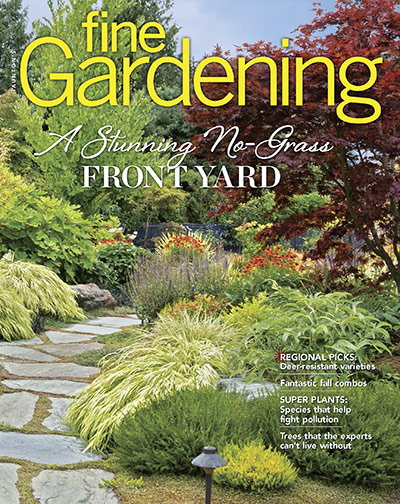Mark Dwyer
-
Midwest Regional Reports
Have You Visited the Garfield Park Conservatory?
The winter doldrums are a reality in the Midwest, especially for gardeners, but an immersive plant adventure at your local conservatory is a sure way to lift your spirits. Fortunately,…
-
Midwest Regional Reports
Winter Herb Gardening: Easy Herbs to Grow in a Cold Frame
Cold frames are a great way to get a jump-start on or extend the gardening season. An easy way to get started with cold-frame growing is to put it to…
-
Midwest Regional Reports
8 Slam-Dunk Perennials for the Midwest
While our gardens are always changing, we certainly put a lot of pressure on our plants to perform and look good, particularly the perennials. The wide range of soils and…
-
How-To
3 Dependable Garden Trowels That Get the Job Done
This three-pointed trowel doubles as a garden fork Tested by Marti Neely, FAPLD A tough trowel is a valued friend for every gardener. I was delighted to discover the DeWit…
-
Midwest Regional Reports
What Is Oak Wilt and How Do You Treat It?
Oak wilt kills hundreds of thousands of oaks (Quercus spp. and cvs. Zones 3–11) in the Midwest and beyond every year, but what is it? Oak wilt is caused by a…
-
Midwest Regional Reports
Peak-Season Perennials for the Midwest
While we would all ideally have gardens that look at their peak in every season, the reality is often far from that ideal. Very few of us have all the…
-
How-To
A Guide to Garden Watering Systems and Strategies
The crisis in water availability continues to make international headlines and has always been a topic of discussion for farmers and gardeners alike. However, increasing and prolonged droughts, heat waves,…
-
Design
Water Smarter: Find the Best Watering Method for Your Situation
Besides impacting the volume of water needed, the types of plants you have and where they are sited will also determine which water delivery method is best. For example, the…
-
Design
Tough Garden Hoses That Will Last
For a traditional hose, try this flexible workhorse Tested by Susan Calhoun If you are a gardener, you have a hose. If you’ve been gardening for a while, you might…
-
Midwest Regional Reports
8 Great Columnar Trees for the Midwest
Vertical elements in the landscape become “visual beacons” and act not only as focal points but as elements of accent and contributors of scale. Narrow and columnar deciduous trees can…















